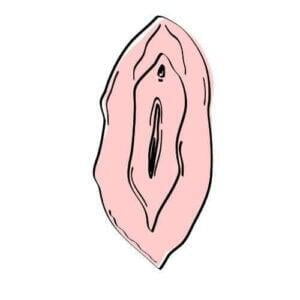Understanding the positive impacts of Pelvic Physiotherapy + LS

Introduction
Lichen sclerosus is a chronic inflammatory skin condition that primarily affects the genital area. While it primarily affects women, it can also occur in men and children. Lichen sclerosus can have a significant impact on the pelvic region, leading to discomfort, pain, and potential complications. In this article, we will explore lichen sclerosus and its specific impact on the pelvic area, including the symptoms, causes, potential complications, and the role of pelvic rehabilitation in managing the condition.
I. Understanding Lichen Sclerosus:
A. Definition and Symptoms:
- Lichen sclerosus is a chronic inflammatory skin disorder characterized by thinning, whitening, and inflammation of the skin in the genital area.
- Common symptoms include itching, burning, discomfort, pain, dyspareunia (painful intercourse), and changes in the appearance of the skin.
B. Causes and Risk Factors:
- The exact cause of lichen sclerosus is unknown, but it is believed to involve an autoimmune response and genetic predisposition.
- Risk factors include hormonal imbalances, certain infections, genetic factors, and immune system dysregulation.
II. Impact on the Pelvic Region:
A. Pelvic Floor Dysfunction:
- Lichen sclerosus can lead to pelvic floor dysfunction, causing muscle tension, pain, and difficulty with bladder and bowel function.
- Pelvic floor dysfunction can further exacerbate symptoms and contribute to the development of additional pelvic floor-related conditions.
B. Sexual Dysfunction:
- Lichen sclerosus can have a significant impact on sexual function, causing pain, discomfort, and fear of intimacy.
- The resulting sexual dysfunction may lead to relationship strain, decreased quality of life, and emotional distress.
III. Potential Complications:
A. Vulvar Scarring:
- In severe cases, lichen sclerosus can lead to vulvar scarring, which can cause further discomfort, pain, and restriction of movement.
- Scarring may also lead to anatomical changes, affecting the overall function of the pelvic region.
B. Increased Risk of Vulvar Cancer:
- Lichen sclerosus is associated with an increased risk of developing vulvar cancer, particularly in long-standing cases.
- Regular monitoring and surveillance are essential to detect any potential malignancies at an early stage.
IV. Role of Pelvic Rehabilitation:
A. Pelvic Floor Muscle Training:
- Pelvic floor muscle training can play a vital role in managing lichen sclerosus-related pelvic floor dysfunction.
- Strengthening and relaxing the pelvic floor muscles can alleviate pain, improve muscle tone, and restore proper function.
B. Scar Tissue Management:
- Manual therapy techniques, such as myofascial release and scar tissue mobilization, can help address the scarring and adhesions associated with lichen sclerosus.
- These techniques aim to improve tissue mobility, reduce pain, and restore flexibility and function in the affected areas.
C. Education and Self-Care:
- Providing education on self-care practices, including proper hygiene, gentle skin care, and appropriate use of moisturizers, can help manage lichen sclerosus symptoms.
- Educating patients about their condition, treatment options, and lifestyle modifications can empower them to actively participate in their own care.
Conclusion:
Lichen sclerosus can have a significant impact on the pelvic region, causing discomfort, pain, and potential complications. Understanding the specific pelvic implications of lichen sclerosus is crucial for effective management and treatment. Pelvic rehabilitation, including pelvic floor muscle training, scar tissue management, and education, plays a vital role in alleviating symptoms,
improving pelvic floor function, and enhancing overall well-being. Seeking the guidance and support of a skilled pelvic floor physiotherapist can help individuals with lichen sclerosus effectively manage their condition and improve their quality of life.


